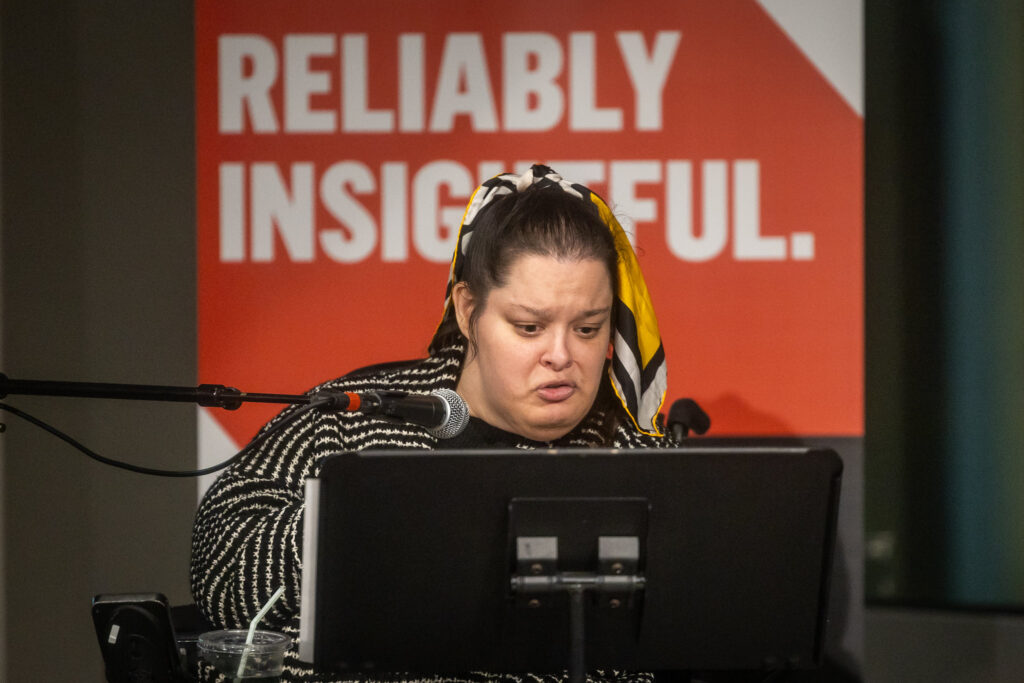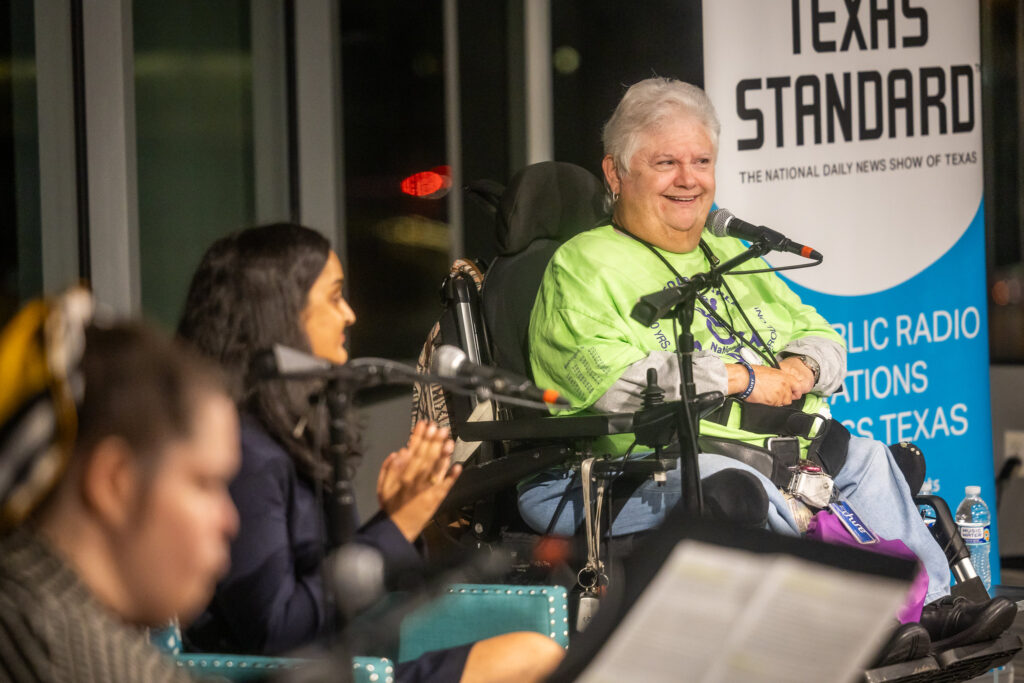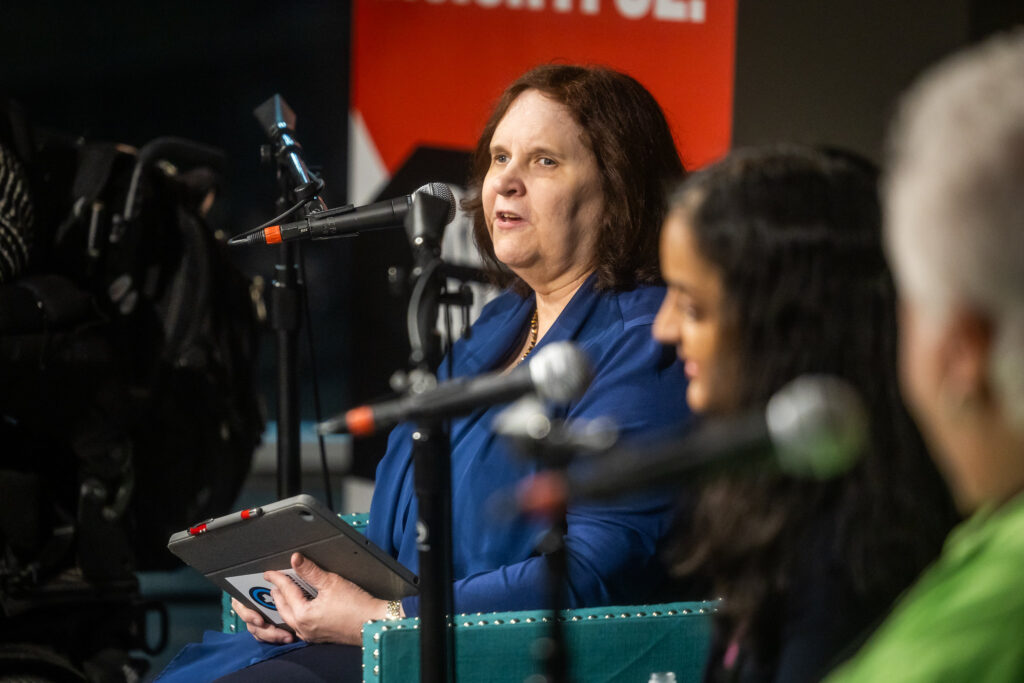On Jan. 24, 2024, Texas Standard and a panel of experts held a public conversation about some of the top issues affecting the 3.5 million Texans who live with a disability.
Texas Standard reporter/producer Shelly Brisbin, who recently hosted Texas Standard’s hour-long special, The State of Disability in Texas, led the discussion. She is a multi-time winner of Barbara Jordan Media Awards, which honor the best reporting about disability in the state.
Audio recordings of this event are made available in four parts. Below is a lightly edited transcript.
In part one, Disability Rights Texas attorney Sashi Nisankarao answers questions about legal and practical access to the voting booth for all.

Disability Rights Texas attorney Sashi Nisankarao speaks during KUT Considers: Disability in Texas.










